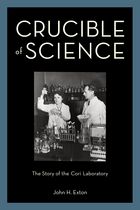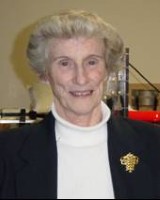
The strength of Vanderbilt biochemistry, especially in the area of metabolism and diabetes, has a lot to do with a brilliant husband-and-wife research team escaping the rise of Nazism in the early 1920s.
That’s according to prominent Vanderbilt University biochemist John Exton who, in his new book, Crucible of Science, details the profound impact that Carl and Gerty Cori had not only on Vanderbilt, but on the nation.
Beginning in the 1930s, their lab at Washington University in St. Louis produced eight Nobel laureates, including both Coris, Stanford University’s Arthur Kornberg, whose work helped revolutionize the field of genetics, and Vanderbilt’s Earl Sutherland, who discovered the hormone second messenger cyclic AMP.

The lab trained other researchers who rose to prominence at Vanderbilt: among them the late Sidney Colowick; Victor Najjar, former chair of microbiology who died in 2002; Charles “Rollo” Park, former chair and professor emeritus of physiology; and his wife Janey Park, professor of molecular physiology and biophysics.
Crucible of Science is very accessible. Exton, professor of molecular physiology and biophysics and of pharmacology, skillfully translates difficult scientific concepts into lay language and never loses sight of the scientists’ personalities.
At one point, Gerty was told that she stood in the way of her husband’s career, and that it was “un-American” for husbands and wives to work together in science. Of course, the Coris didn’t follow that advice.

Exton writes in his introduction, “They were unconcerned with issues of gender, religion and national origin and, surprisingly, did not require prior training in biochemistry – it was the quality of the mind that mattered.” Gerty went on to become the first American woman to win a Nobel Prize in Medicine or Physiology.
Carl “was way ahead of his time in terms of tolerance,” Exton said in an interview. “He was willing to go ahead and … take a risk,” not only in the experiments he did but in the people he trained. “He took a gamble on them, and he was right,” he said.